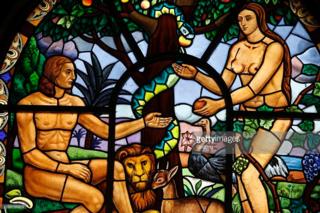What We Believe: Part 16 – Some Fundamentals about Marriage.

We have seen that from the very beginning of creation, that love is fundamental. Both the angels and humans were tested primarily about their love of God. Indeed humans were created in the image and likeness of God with a spiritual component which we call a soul. The soul will never die because it is spiritual and does not have anything abou it that is capable of dying, unlike the material body that can deteriorate and die. It is the spiritual component that is like to God with free will and intelligence and ability to show one’s love of God. We do so through choosing to do what we know God wants us to do instead of what we want to do.
This preliminary reflection on the place of love in our lives is the foundation for our consideration on the institution of marriage. God created humans as a pair with man and woman to form a union of love as an image of the absolute and unfailing love with which God loves humans. As Scripture assures us, this loving union “is good, very good, in the Creator’s eyes.” (1604). And this love which God blesses is intended to be fruitful and to be realized in the common work of tending and cultivating creation. “And God blessed them, and God said to them:’ Be fruitful and multiply and fill the earth and subdue it.’” (Gen 1:28)
Thus, God does not depend on the animals and birds to manage and tend His created world, but on humans. They are to do so by multiplying through expressing their love for each other and then working to cultivate and control the growth of nature so that it would provide all that is needed for human welfare and secure existence.
 We must understand that “The Church holds the exchange of consent between the spouses to be the indispensable element that ‘makes the marriage.’ (Canon Law #1057) If consent is lacking there is no marriage”(1626) Also, the spouses marry each other, not the priest or deacon who witness the marriage.. “The priest (or deacon) who assist at the celebration of a marriage receives the consent of the spouses in the name of the Church and gives the blessing of the Church” (1639).
We must understand that “The Church holds the exchange of consent between the spouses to be the indispensable element that ‘makes the marriage.’ (Canon Law #1057) If consent is lacking there is no marriage”(1626) Also, the spouses marry each other, not the priest or deacon who witness the marriage.. “The priest (or deacon) who assist at the celebration of a marriage receives the consent of the spouses in the name of the Church and gives the blessing of the Church” (1639).
We are presenting some fundamentals that must be understood because of what we will explain henceforth.




No Comments